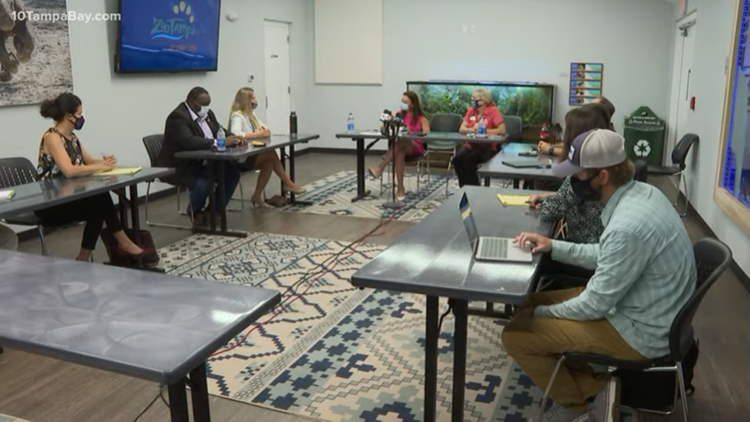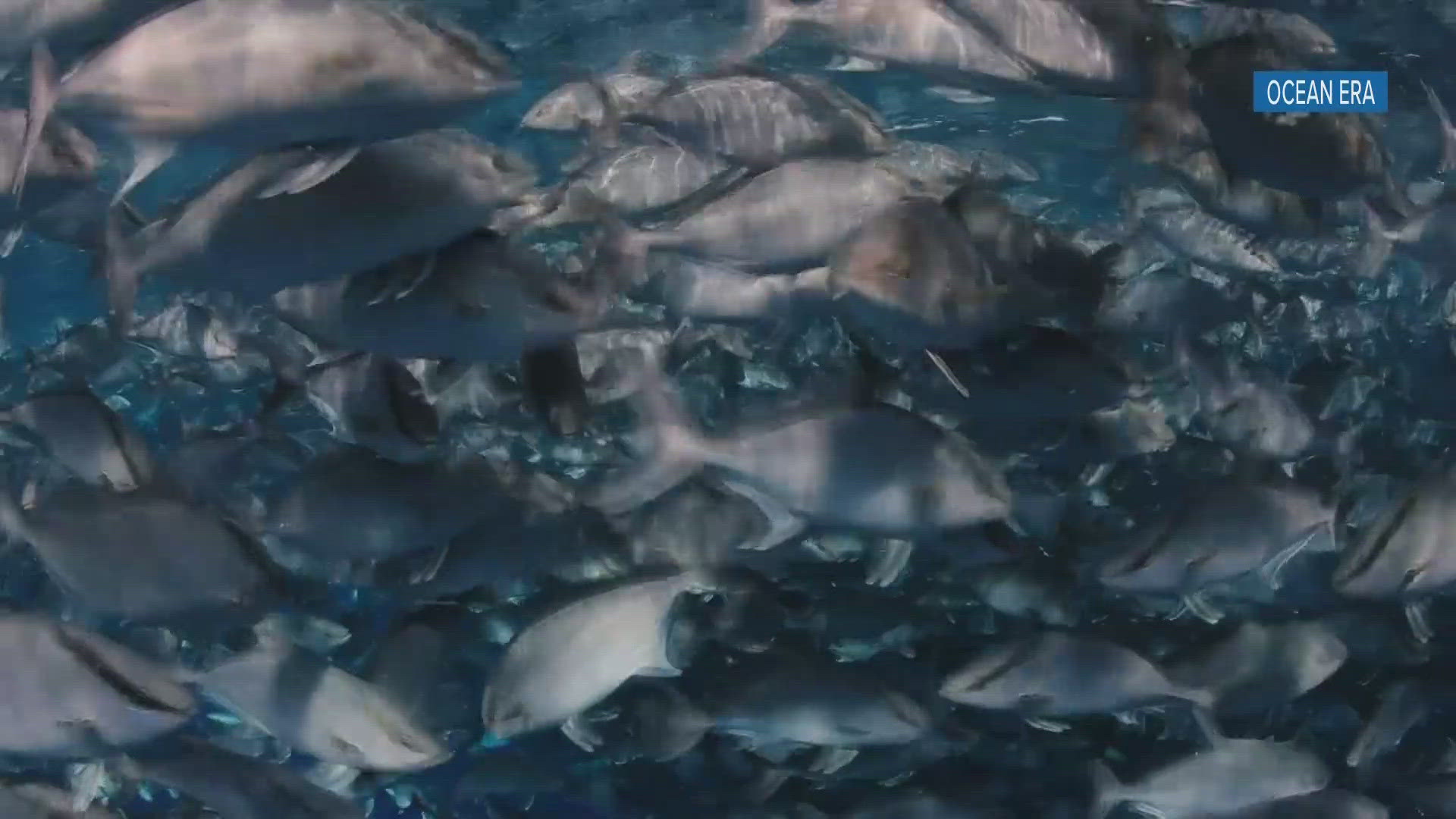TAMPA, Fla. — Florida Agricultural Commissioner and gubernatorial candidate Nikki Fried on Thursday came to the Tampa Bay area to discuss recent water quality issues that have caused a devastating red tide season and a historic number of manatee deaths.
Several environmental advocates were part of the roundtable and raised concerns over the lack of political will to address water quality. The advocates said the state had invested more money into clean-up efforts rather than preventative measures.
A pair of examples used were red tide and manatee deaths.
The general conclusion the Florida Fish and Wildlife Conservation Commission has reached is that Florida manatees are starving due to the loss of seagrass in the state's waterways. Manatees are being found severely emaciated – sometimes 40 percent underweight.
Many parts of Florida are dealing with harmful algae blooms, like red tide and blue-green algae, which are contributing to the seagrass die-off. In Indian River Lagoon, where a majority of the deaths are being recorded, 58 percent of seagrass acreage has died since 2009, FWC says.
Advocates at Thursday's roundtable questioned who was being held accountable for the worsening algal blooms, adding that allowing the issue to persist not only impacts wildlife but human health.
Last month Fried's office announced a new Clean Water Initiative for the state, which prioritized high-value projects and continued to employ more efficient nutrients and water usage practices, among other things.
According to Fried, at the time, the following first-ever practices will be put in place under the initiative:
- Conducting in-person visits in cooperation with agriculture stakeholders instead of relying on voluntary self-reporting when it comes to compliance.
- Taking action against anyone refusing to comply with state law.
- Working with producers on corrective action plans and refer cases of non-compliance to the DEP for enforcement.
- Inspecting, collecting and aggregating detailed records of the nutrients being applied by agriculture producers on the reduction landscape.



